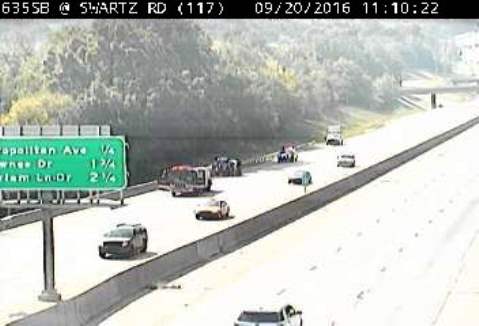by Jim McLean, KHI News Service
Stormont Vail Health of Topeka is closing two regional clinics because of financial pressures created by recent cuts in Medicaid reimbursements and the decision by state leaders not to expand the health care program.
Stormont will close Cotton O’Neil clinics in Lyndon and Alma, according to a news release. The Lyndon clinic will close Dec. 31. The clinic in Alma will close Jan. 31, 2017.
“We want the people of Lyndon and Alma, and the surrounding area, to know that this decision was not made lightly,” said Randy Peterson, Stormont’s chief executive officer. “However, the current 4 percent Medicaid cuts, which totaled $3 million in reduced reimbursements for Stormont Vail Health, along with the impact of the state’s failure to expand Medicaid makes it difficult to continue to fund these community clinics.”
Republican Gov. Sam Brownback ordered the cuts in KanCare, the state’s privatized Medicaid program, to balance the state budget in the wake of continued revenue shortfalls. The cuts, which took effect July 1, will save the state an estimated $56.3 million but also will trigger a loss of $72.3 million in federal matching funds.
Combined, the managed care organizations that administer the $3 billion KanCare program and the health care and service providers they have contracts with face more than $128 million in cuts. Of particular concern to Stormont Vail and other providers is the proposed 4 percent reduction in reimbursement rates, which would amount to about $87 million of the $128 million total.
The announced closure of the clinics may create more pressure on Brownback and state lawmakers to expand KanCare. That pressure already was building due to the closure last fall of Mercy Hospital in Independence.
Brownback and Republican legislative leaders opposed to expansion have blocked debate on the issue for the past three years. But a string of victories by moderates over conservatives in the August primary election have Medicaid expansion advocates hopeful for the 2017 session.
Expansion opponents say they don’t trust the federal government to cover its share — no less than 90 percent — of the cost of serving an estimated 150,000 additional Medicaid recipients. They also object to expanding Medicaid to non-disabled adults until thousands of people with developmental disabilities are cleared from a waiting list for Medicaid support services.
Supporters of Medicaid expansion say the billions of additional federal dollars it would bring to Kansas are essential to the survival of several financially struggling hospitals. They say the state’s rejection of expansion has cost the state more than $1.4 billion in additional federal funds.
The nonprofit KHI News Service is an editorially independent initiative of the Kansas Health Institute and a partner in the Heartland Health Monitor reporting collaboration. All stories and photos may be republished at no cost with proper attribution and a link back to KHI.org when a story is reposted online.

